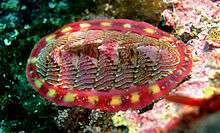Latest News for: molluscs
Edit
The RVC awarded funding to advance mollusc aquaculture sustainability in southeast Asia (Royal Veterinary College)
Public Technologies 08 Apr 2025
UK Research and Innovation (UKRI) has granted funding to the Royal Veterinary College (RVC) as part of a crucial project researching the sustainability of mollusc aquaculture in southeast Asia.
Edit
Feralla®, New Active Ingredient for Mollusc Control, Gains EU Approval
PR Newswire 03 Apr 2025
This leads to faster mollusc control, usually within three days of application, which effectively reduces feeding damage, ultimately boosting both crop yield and quality.
- 1


